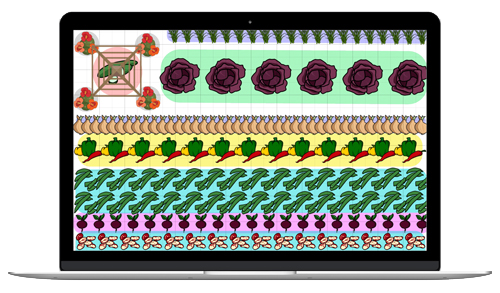Libraries are not just for lending books. A rapidly growing trend is for libraries to offer seeds to their gardening patrons!
You may be surprised to learn that there are a multitude of things available at your local branch beyond books. Depending on the need in your community you can borrow tools, appliances, medical devices including walkers, crutches, and blood pressure cuffs, artwork, Halloween costumes, and even cake pans!
What is a Seed Library?
Many libraries in my area—including mine—are becoming seed depositories where you can “borrow” seeds for your garden, grow the plants, and, at the end of the season, collect some seeds to return to the library for next year. Eventually, this effort will build a sustainable collection of seeds adapted to our area.

Why Start a Seed Library?
Why would anyone start a “seed library” in a public library?
- To build a culture of self-reliance and sharing.
- To strengthen regional food security.
- To support a local seed-saving network.
- Preserve seeds that have proven to be successful in your area.
- To provide ongoing encouragement and education for gardeners at all levels of expertise.
- To help people save money and safeguard against supply chain disruptions and seed shortages.
- To revive lost and endangered varieties.
- To preserve the genetic diversity of plants.
- How will they do this?
- By collecting and distributing open-pollinated seeds for community use.
- By promoting seed-saving skills.
- By offering gardening programs and educational materials.
- By providing gardeners with the opportunity to try new plants.

How Does a Seed Library Work?
It’s not hard to start one (or even suggest one) at your local library. For years, my partner Tom and I hosted a seed swap at our library. We both manage a greenhouse business and start seeds for fellow gardeners.
With donated seeds from Baker Creek as the base, gardeners could bring in their extra, unwanted, or saved seeds to trade. It was always a fun community event. The library has decided to take it a step further and become a seed library. They have been able to solicit seeds from a wider range of companies to get this up and running. Seeds will be available until we run out, and hopefully, many of them will be returned at the end of the growing season.
Start a “Seedy Saturday”
We will be offering a few programs this spring on “Seedy Saturdays” to answer questions and give growing advice. Many libraries are collaborating with their local garden club and master gardeners to oversee the seed collections and plan educational programming.
According to the Food and Agriculture Organization of the United Nations, more than 90% of crop varieties have disappeared from farmers’ fields over the past 100 years. Plant genetic diversity has been lost worldwide due to farmers dropping traditional varieties and turning to hybrid crops. The problem is that we all don’t garden in the same climate with the same type of soil conditions. The best way to maintain crops that do well in your environment is to grow them and save their seeds to plant again next season. Over time, these tried-and-true varieties adapt to the conditions they grow in and can be depended upon. Should they be needed, they contain the genetic diversity necessary to develop new crops that are disease-resistant, flavorful, and high-yielding.
Check out your local library, gather up your extra seeds, and see what you can do to help with this endeavor!
Find a Seed Library Near You
There are now over 500 seed lending libraries open worldwide! (See list below.)
See a list of seed libraries worldwide.
See the handy seed library map.
How to Save Seeds
If you’re wondering if last year’s seeds are still viable, read my post on how long seeds last.
Do you want to save your own seeds? Don’t wait until late summer harvest. Planning for seed saving starts at planting time. Distance between plants matters.
Learn more about how to save vegetable seeds and flower seeds.













